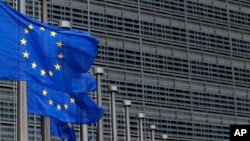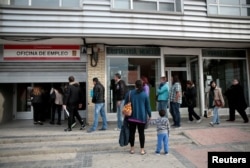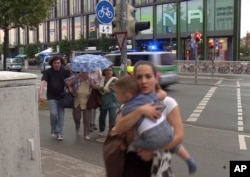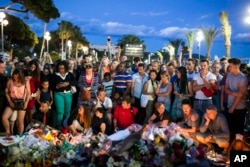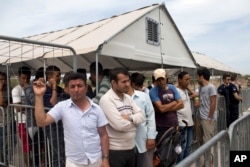As the 27-member European Union wakes up from its long August recess next week, thoughts are turning to what will be a critical quarter for the bloc as it makes preparations for divorce talks with Britain as well as strengthening internal and external borders, boosting economic growth and providing jobs for its young people.
The bloc will be holding a crucial meeting in Bratislava on September 16 in a bid to forge a common position on the EU's future and hash out pressing issues.
The sharp rise in terrorism, the failure to protect external EU borders and the current failure of the European project to deliver sufficient jobs and prosperity to the coming generation are the daunting challenges that face Europe’s leaders.
Guntram Wollf, director of the economic think-thank Breughel, said the far-reaching issue will be how the European Union is getting itself out of its current malaise.
“Will there be more reforms, will there be a greater sense of stepping up the game and become more productive and efficient and more collaborative, or will the result be the opposite?” he asked.
Rise in terror attacks
One of the most immediate challenges is Europe's fight against terrorism after it was shocked by a number of attacks in Belgium, France and Germany over the past year. The most deadly attacks are linked to sympathizers of the radical Islamist group, Islamic State.
Mark Singleton, former director of the International Center for Counter-Terrorism, said even though the EU has developed a lot of non-binding anti-terrorism policies, there is not enough harmonization between the countries to come up with a cohesive plan.
“Terrorism threat is by definition a national responsibility so member states of the EU each have their own approaches to the threat, depending on their own perspectives and past history with the phenomenon,” he said.
EU member states do not like to delegate security supervision to a body such as the European Commission. Singleton says the current trend in Europe is to prioritize national interests while terrorism can only be solved collectively by addressing root causes of radicalization.
Despite most of the radicalized terrorists in Europe being homegrown, the terrorism threat has increased calls to close the borders for incoming refugees and migrants. Eastern members the Czech Republic, Hungary, Poland and Slovakia are refusing to take in refugees under a EU-wide quota system championed by Berlin.
Migrant crisis
This past week, several hundred protesters, including members of anti-Islam groups, rallied in central Prague against German Chancellor Angela Merkel and her decision to open the EU's doors to refugees and migrants last summer.
Tatiana Festerling, leader of Germany's anti-Islamic, anti-immigrant Pegida movement, was also present for the demonstration.
"There are diverging views on how to distribute migrants across the EU, but on many other issues opinions converge," Merkel said in response, pointing to an EU agreement with Turkey to stem the flow of mostly Syrian refugees to Europe.
Jonathan Prentice of the International Crisis Group doesn't believe that stemming the flow of refugees to Europe will work.
“Precedent suggests that those desperate enough to risk drowning in the Mediterranean will always strive to find pathways to safety, even ever more dangerous ones. And Europe will find it difficult both to expect other states to remain open to refugees when it fails to do so. The EU is risking its long-standing commitment to human rights and development for the goal of keeping migrants at bay,” he said.
Post-Brexit tour
Merkel met with 15 EU leaders over the past week on a post-Brexit tour to find a compromise between those who want deeper European integration and those, particularly in eastern and central Europe, where governments support taking some powers back to the national level.




